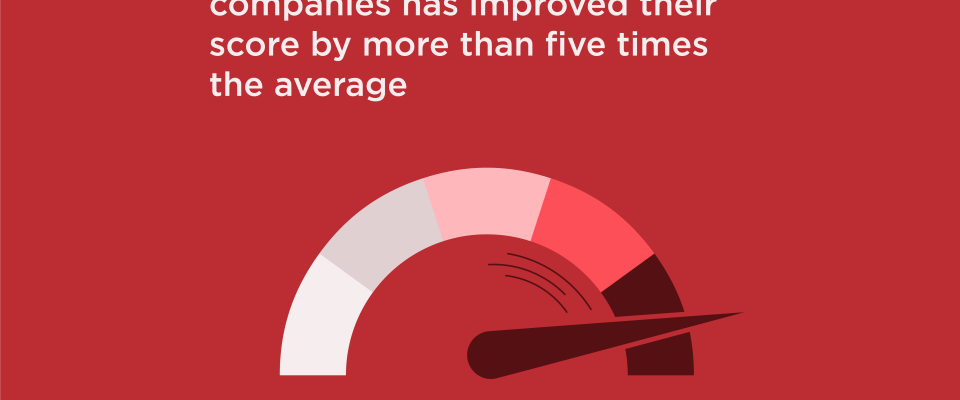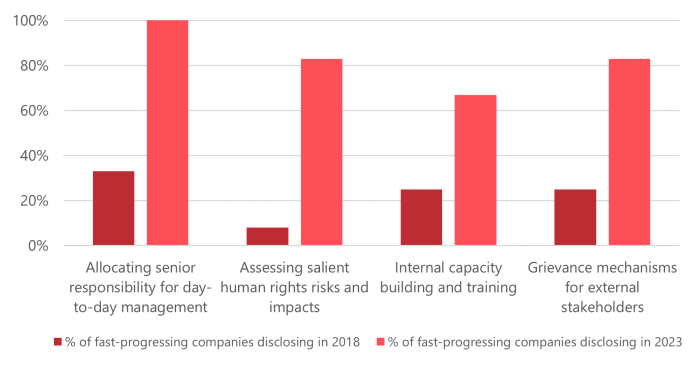Key finding
Some companies show that transformative change is possible within five years

Over the course of the past five assessments of the benchmark, corporate accountability on human rights has gained momentum. Nearly 70% of apparel and extractive companies have improved their performance on fundamental human rights indicators, which cover things like policy commitments, human rights due diligence, and grievance mechanisms. While most companies are making progress, the majority have only made small improvements, with an average increase of just 2–3 points over five years. Although the pace of progress is slow for most companies, certain companies have made significant strides in integrating respect for human rights into their activities. A group of 12 companies has improved their score on fundamental human rights indicators by more than five times the average and improved their sector ranking by over ten places (out of 55), demonstrating the potential for transformative change.
So, what are these fast-progressing companies doing differently? Firstly, they have assigned senior-level responsibilities for human rights and structured the day-to-day management of human rights. While only a third of these companies implemented these practices in their first assessment, it is now a standard practice among all of them. Secondly, they have improved their processes for identifying, assessing and integrating human rights risks and impacts. Initially, only 8% of the fastest-progressing companies implemented some part of a human rights due diligence process; now 83% of them do. Thirdly, they have built internal capacity on human rights, with the share of companies providing training on human rights rising from 25% to 67% in the last five years. Lastly, fast-progressing companies have implemented grievance mechanisms for individuals and communities outside of the company and taken measures to protect those who raise complaints. Only 25% of the companies disclosed these mechanisms and measures in their first iteration. Today, 83% of companies disclose evidence of external grievance mechanisms and 92% of measures against retaliation.
Change in disclosure by fast-progressing companies

These practices have enabled this group of companies to integrate human rights into various aspects of their operations, understand the potential risks and impacts that their activities pose to people on the ground, and give people affected by their actions a platform to voice their concerns. As such, these practices likely act as catalysts for faster improvement. Notably, other companies whose rankings have fallen significantly since their first assessment have stopped disclosing information on these topics, and companies that are stuck at the bottom have yet to start implementing or disclosing information on any of these practices.
The fast-progressing companies show that rapid and transformative corporate change is possible, highlighting how companies can make substantial progress in their human rights policies and practices if they prioritise and allocate resources to address key issues. These practices should be a focal point for both companies and those who influence them, like investors, as they can help accelerate progress for companies that are currently lagging behind.
